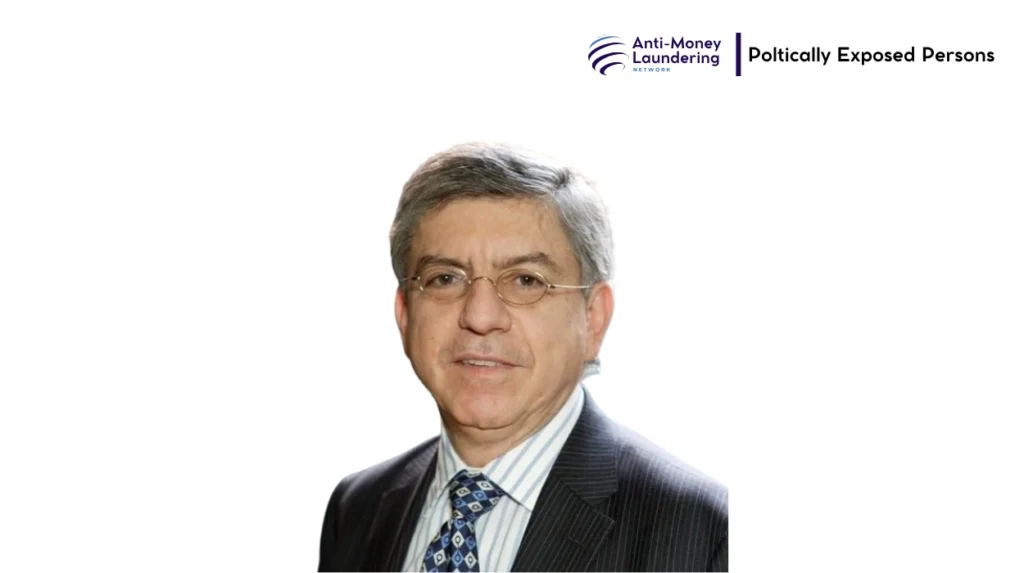César Gaviria is a significant figure in Colombian politics and international diplomacy, known for his presidency of Colombia from 1990 to 1994 and his later role as Secretary General of the Organization of American States (OAS). During his leadership, he oversaw constitutional reforms and took a strong stance against powerful drug cartels that shaped Colombia’s modern history. His influence extends beyond national politics into regional cooperation, democracy promotion, and drug policy reform. Throughout his career, Gaviria has been recognized as a pragmatic leader who helped navigate Colombia through one of its most turbulent eras.
Early Life and Background
Born on 31 March 1947 in Pereira, Colombia, Gaviria was raised in a politically influential family with deep roots in Colombian governance and business. His background gave him early exposure to public service and politics. He studied economics at the University of the Andes in Bogotá, graduating at the top of his class. An early international experience as an exchange student in the United States further broadened his worldview and enhanced his leadership skills. His Colombian nationality and citizenship placed him firmly within the country’s elite political class, preparing him for roles of increasing responsibility.
Personal Life
Gaviria’s personal life has been largely private. He is married and has children who have maintained a low profile, avoiding the public attention that his political career brought. His family life has been kept separate from his public duties, reflecting his focus on governance and international affairs rather than personal publicity.
Career and Achievements
Gaviria’s political ascent began in his hometown of Pereira, where he was elected councilman at age 23 and later became mayor. Soon after, he was elected to Colombia’s Chamber of Representatives in 1974, eventually becoming its president. He also held important ministerial roles, including Minister of Finance, Minister of Justice, and Minister of the Interior. His political career advanced within the Colombian Liberal Party, where he held leadership positions.
In 1990, Gaviria was elected President of Colombia. His administration was marked by the passage of a new constitution in 1991, which introduced significant reforms promoting democracy, human rights, and judicial independence. As president, he led the fight against the Medellín and Cali drug cartels, orchestrating efforts that ultimately resulted in the death of Pablo Escobar, one of the most notorious drug traffickers in history.
Despite their historical collision during Colombia’s violent drug wars, Gaviria and Escobar were not related. This distinction is important given public speculation due to their prominence during overlapping periods.
After his presidency, Gaviria served as Secretary General of the OAS from 1994 to 2004, where he focused on promoting democracy, human rights, and regional cooperation throughout the Americas. He remains active in politics and public causes, including serving as director of the Colombian Liberal Party since 2017 and participating in global drug policy reform commissions.
Lifestyle and Wealth
Gaviria has maintained a modest lifestyle compared to many political figures in Latin America. No public records indicate ostentatious wealth such as ownership of palaces or yachts. His personal wealth is not widely disclosed, reflecting a focus on his public service and diplomatic engagement rather than material accumulation.
Influence, Legacy, and Global Recognition
Gaviria is best known for his transformative presidency during a critical time in Colombia’s history. His leadership helped to redefine Colombia’s democratic institutions and bring new legal frameworks that strengthened human rights and justice. He is also recognized internationally for his role in the OAS and his advocacy for evidence-based and humane approaches to drug policy. The surname Gaviria carries political significance in Colombia, representing a legacy of governance and reform.
His contributions to shaping drug policy, both in Colombia and internationally, have been influential. His commitment to promoting science-based discussions and reducing the harms associated with drug trafficking has placed him among prominent global voices in this area.
Financial Transparency and Global Accountability
As a Politically Exposed Person (PEP), Gaviria’s career is closely tied to ongoing discussions about governance and financial transparency in Colombia. Although there are no allegations or sanctions against him personally related to financial crimes, the political context of his presidency was deeply affected by corruption and illicit financial activities linked to drug trafficking and paramilitary groups. Gaviria confronted these issues while navigating a system often characterized by elite protection and weak institutionality. His experience highlights the significance of transparency, accountability, and reform in strengthening Colombia’s democracy.
César Gaviria’s enduring legacy is marked by his transformative leadership during one of the most complex periods of Colombia’s political history. From his journey as an economist and public servant to head of state and international diplomat, he has shaped constitutional reform, fought drug cartels, and promoted democracy with resilience and pragmatism. His discreet approach to personal wealth contrasts with the breadth of his public influence. Gaviria’s life and work continue to inspire discussions on governance, peacebuilding, and drug policy reform, making him a crucial figure in shaping Colombia’s modern political trajectory.

